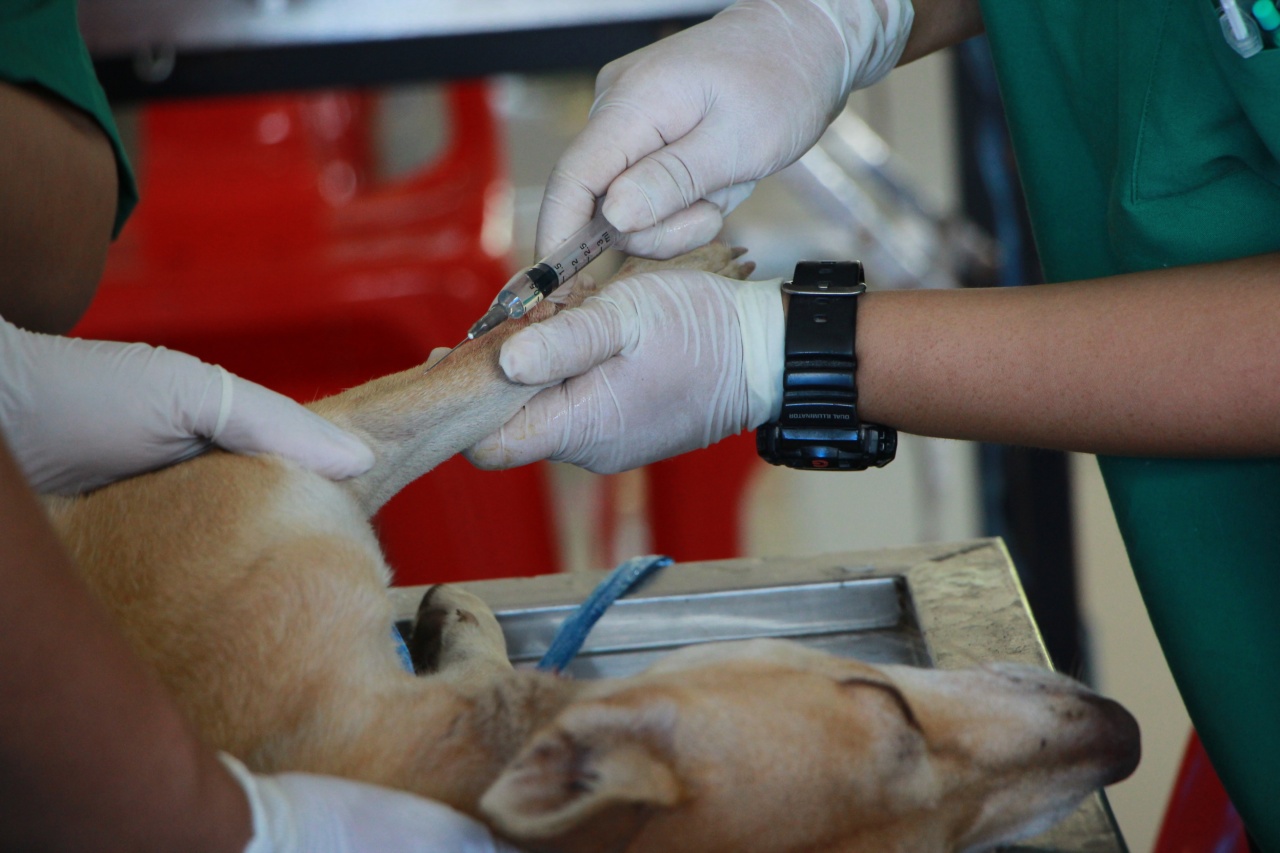A dog diagnosed with Kalazar, also known as Leishmaniasis, requires special care and attention, especially when it comes to nutrition. Proper feeding plays a crucial role in the dog’s overall health and well-being.
This comprehensive guide will provide you with expert advice and practical tips on feeding a sick dog with Kalazar.
1. Consult with Your Veterinarian
Before making any changes to your sick dog’s diet, it is essential to consult with your veterinarian. They will provide you with specific guidance based on your dog’s condition and individual needs.
Your vet may recommend a specially formulated diet or suggest modifications to your dog’s current food to ensure optimal nutrition.
2. Focus on High-Quality Protein
Protein is crucial for supporting your sick dog’s immune system and overall health. Opt for high-quality protein sources such as lean meats (chicken, turkey, or beef), fish, or eggs.
Avoid processed meats or those high in fat, as they can negatively impact your dog’s health.
3. Choose Easy-to-Digest Carbohydrates
Carbohydrates are an essential energy source, but sick dogs with Kalazar may have impaired digestion. Choose easily digestible carbohydrates like boiled rice or cooked oats.
These are gentle on the stomach and provide sustained energy without causing digestive distress.
4. Incorporate Healthy Fats
Healthy fats are essential for your dog’s skin, coat, and overall well-being. Include fats from sources such as fish oil or flaxseed oil in your dog’s diet.
These fats also aid in reducing inflammation, which is beneficial for dogs with Kalazar.
5. Provide Small and Frequent Meals
Sick dogs with Kalazar may experience decreased appetite or digestive issues. Rather than providing a large meal, offer smaller portions throughout the day. This approach helps in easy digestion and ensures your dog receives adequate nutrition.
6. Consider Nutritional Supplements
Your veterinarian may recommend specific nutritional supplements to support your dog’s health. Omega-3 fatty acids, vitamins, and minerals are commonly prescribed to strengthen the immune system and promote overall well-being.
Always follow your veterinarian’s advice when administering supplements.
7. Encourage Hydration
Proper hydration is crucial for sick dogs, as they may experience increased water loss due to the disease or medication side effects. Ensure fresh water is always available, and encourage your dog to drink regularly.
If necessary, your veterinarian may recommend additional electrolyte supplementation.
8. Avoid Harmful Foods
Some foods can be toxic or harmful to dogs, and it is important to avoid them when feeding a sick dog with Kalazar. Common examples include chocolate, caffeine, onions, garlic, grapes, and raisins.
These foods can worsen the dog’s condition and may lead to severe complications.
9. Monitor Your Dog’s Weight
Regularly monitor your sick dog’s weight to ensure they are maintaining a healthy body condition. Weight loss may indicate underlying illness or a lack of proper nutrition.
Consult with your veterinarian if you notice any significant changes in your dog’s weight.
10. Seek Professional Dietary Advice
Every dog is unique, and their dietary needs may vary. Some dogs with Kalazar may benefit from therapeutic diets or specific nutritional plans.
If you are unsure about your dog’s nutritional requirements or need further guidance, consider seeking help from a professional veterinary nutritionist.
Feeding a sick dog with Kalazar requires attention to detail and a tailored approach.
By consulting with your veterinarian and following these expert tips, you can ensure that your dog receives the necessary nutrition to support their health and boost their chances of recovery.


























